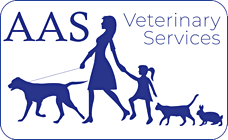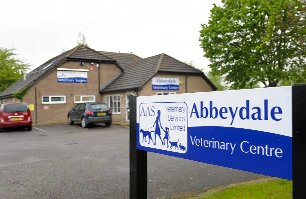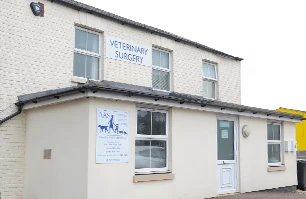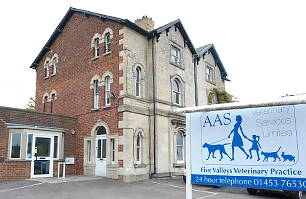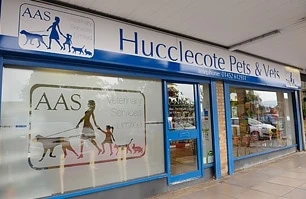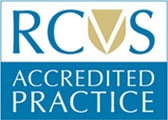Prior to the operation
Your pet may be having an anaesthetic or sedation. In order to prepare for this, we recommend that your pet is not fed after 8 pm the night before the procedure. No food should be offered the morning of the operation either. Unless otherwise stated by your vet, water may be available overnight, but removed in the morning of the operation.
Please give any medications as normal, unless otherwise advised by the vet. If your pet is on any medication, please let the reception know what was given and the time of the last dose when you bring your pet in.
All dogs should be given the opportunity to urinate and defecate prior to coming in. This will often help us keep the patient clean under anaesthetic, which is important to wound care.
All cats should be kept indoors the night before the operation. This is to prevent them from eating anything whilst outdoors, and prevent cancelled appointments if they do not return the following morning.
We require payment of any fees accrued on the day of the procedure. If you would like an estimate prior to the procedure, please request one. We will endeavour to keep to estimates, but please be aware, these are only estimates. In the unlikely event that unexpected work or complications arise, we may exceed your estimate. Please ensure you are contactable on the day of the procedure – to allow us to keep you updated on the progress of your pet’s procedure and any costs.
Admission times
We recommend all patients are brought in to the practice at 9 am on the morning of the operation. A competent adult over 18 years old must read and sign the consent form.
Consent Form
The consent form will list your contact details, please check these are correct, and update them if required. Please weigh your pet dog when you come in. Medications are calculated to each individual’s bodyweight to ensure the most effective dose is provided. Cats will be weighed after admit.
Please check the procedure being undertaken is what you are expecting, and if you are unsure, please clarify this with us. Any additional procedures can be requested and added here, for example, nail cuts etc. An estimate of the cost will also be included. If you would like a breakdown of this estimate, please ask. The estimate provided will often include expected costs for the procedure. It may or may not include additional optional extras which are recommended by the vet – for example, Elizabethan collars to prevent patient interference and additional pain relief.
Some procedures do not always necessitate these products, so they may not be part of the initial estimate. If the vet feels that the patient would benefit from them, they may be added on the day. Please note that these items may be optional, and you are welcome to refuse these items with the option of purchasing them later if you feel that your pet may benefit from them. Refusal of recommended items is at your risk, and for example, if a patient interferes with its wound as a collar has been refused, you may be liable to pay for corrective treatment if required.
You will have to consent that you understand the procedure, risks involved, costs and that the vet may need to act in the best interests of the animal should we be unable to contact you with the details you have provided. Please ensure you are contactable throughout the day of the procedure. We require a consenting signature by owners over 18 years old.
Current medications and time last provided should be listed on the second page, as some medications provided by yourselves may affect what we provide on the day.
Fluid therapy is a new Gold Standard optional extra we recommend to help stabilise a patient’s blood pressure whilst under anaesthetic. During an anaesthetic, the patient’s blood pressure can drop, and this can affect the patient’s ability to process drugs through the kidneys, prolonging recovery time.
Blood tests
Blood tests are often recommended for patients over 8 years old. These tests are optional and come in two tiers, a basic or a comprehensive test. Basic tests check liver and kidney function parameters, which are the main organs involved in processing and excreting medications from the body. If they are not working normally, patients could have some increased anaesthetic risks and prolonged recovery time. Comprehensive tests check a wider range of body system parameters. If you choose to have a blood test, the vet will inform you of relevant results if actions are required to support the patient during the anaesthetic procedure, such as providing fluid therapy.
Laser therapy is recommended for neutering and dental procedures, as well as some other surgical operations and orthopaedics. Laser therapy uses infrared wavelengths to speed up healing and reduce pain and inflammation. It can also be used for management of certain other conditions following diagnostics.
Microchipping your pet
We recommend microchipping all pets to allow for easier identification if they ever become lost. If microchipping is done during a procedure, we will microchip them at a reduced price.
You will be asked about how you will be paying for the procedure, as all fees accrued will require payment at patient collection. We generally do not accept direct claims as the agreement with your insurance company is between yourselves. Please bring an insurance form with you on collection of your pet to ensure timely completion and subsequent payment by your insurance company. Any direct claims need authorising in advance by the head vet, and a pre-authorisation submitted and approved by your insurance provider prior to the procedure.
Belongings brought in should be identifiable, and we will label personal items. It is helpful to have a description of belongings detailed on the consent form as from time to time, it may be necessary to wash items that have become dirty whilst your pet is with us.
You will be asked for consent to put your pet on our social media page (Facebook etc) if we feel that they may make an entertaining or educational post to our other clients. We will not disclose any personal details of yourself as the owner. Please indicate your acceptance in the tick boxes.
Following GDPR legislative requirements, we now need to reinstate data protection permissions every 2 years. We will request authorisation for marketing purposes too. We rarely run marketing campaigns and you are free at any point to be removed from our lists. Please indicate your acceptance in the tick boxes.
Procedures
Procedures will often occur in the morning and early afternoon, following consultations. The vet may contact you during a procedure if they feel that an update is required, or further consent is required to further a procedure. After your pet's procedure, the vet or nurse will contact you to inform you of your pets recovery and expected collection time. They will be able to advise you of the expected costs on request.
OOH Care
It may be necessary after some operations/procedures for patients to be hospitalised with us overnight. You will be informed prior to the procedure if this is expected. We offer hospitalisation of patients at our Abbeydale premises. We have separate facilities for dogs and cats. The kennels are modern, warm and comfortable. Checks are made frequently by the duty veterinary surgeon or veterinary nurse as required. These checks will be at a minimum last thing at night (7pm) and first thing in the morning (8am). We also have CCTV monitoring which allows us to check our hospitalised patients. In the case your pet requires 24-hour intensive care, we have the option of referring you to our out of hours service at Woods Veterinary Clinic, 125 Bristol Road, Quedgeley, Gloucester, GL2 4NB.
Collection
After a suitable amount of time to recover from the procedure, your pet can be collected. A staff member will provide you with information regarding the procedure, and pertinent details of any aftercare instructions. Any medications or other treatments will also be explained. Please ensure the instructions are followed, and any points you do not understand are clarified. Instructions may include details of reduced exercise, feeding, interference prevention, wound monitoring etc.
Post-operative checks
If required, you will be invited for a post-operative check within the first week after your pet’s procedure. This is to check any wounds are healing well, and provide any further treatment as required. If stitches require removing, these will be booked in a subsequent visit (usually 10 days after the operation). Both of these checks are usually inclusive within the cost of the operation, however, if the patient is not healing as expected, or requires extra treatment or bandaging etc, these will be chargeable.
